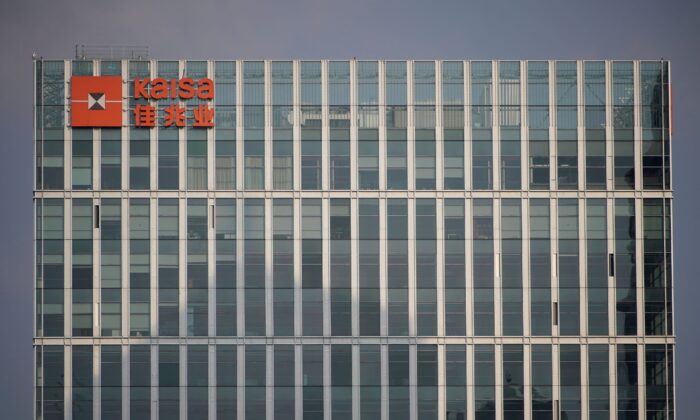
HONG KONG/LONDON—Ratings agency Fitch downgraded property developers China Evergrande Group and Kaisa Group on Thursday, saying they had defaulted on offshore bonds, while a source said Kaisa had started to work on restructuring its $12 billion offshore debt.
downgrades to so-called “restricted default” status come even though Evergrande and Kaisa have not officially announced defaults that could result in drawn-out debt restructuring processes.
fate of Evergrande, which has more than $300 billion in liabilities, and other indebted Chinese property companies has gripped financial markets in recent months amid fears of knock-on effects around the world, although Beijing has repeatedly sought to reassure investors.
In its note on Evergrande, Fitch said the developer did not respond to its request for confirmation on coupon payments worth $82.5 million that were due last month, with the 30-day grace period ending this week, and so assumed “they were not paid.”
Evergrande and Kaisa did not immediately respond to Reuters’ requests for comment on Fitch’s decision.
“ defaults of Evergrande and Kaisa move us to the second step of this China Property downturn, with systemic risk being gradually replaced by idiosyncratic risk,” said Robin Usson, credit analyst at Federated Hermes.
“It will be interesting to see the role played by SOEs [state-owned enterprises] in the restructuring process, the level of ‘control’ exerted by the government over this ‘marketed-oriented approach,’” Usson added.
People’s Bank of China (PBOC) Governor Yi Gang said on Thursday that rights of Evergrande shareholders and creditors would be “fully respected” based on their legal seniorities, and the risk caused by a few Chinese real estate companies in the short term would not undermine Hong Kong’s capital market.
Fitch defines a restricted default as indicating an issuer has experienced a default or a distressed debt exchange, but has not begun winding-up processes such as bankruptcy filings and remains in operation.
non-payment has triggered an “event of default” on Evergrande’s bonds and its other U.S. dollar notes will become due immediately and payable if the bond trustee or holders of at least 25 percent in aggregate amount declare so, Fitch said.
same “cross default” is true for Kaisa, which, according to Refinitiv data, has note maturities totalling $2.8 billion next year, and $2.2 billion–3.2 billion of maturities each year between 2023 and 2025.
Fitch said there was limited information available on Kaisa’s restructuring plan after it missed $400 million in offshore bonds repayment on Tuesday.
Evergrande said last week it planned to forge ahead with a restructuring of its debt.
By Clare Jim and Karin Strohecker
Pezou : Evergrande, Kaisa Cut by Fitch to ‘Default’ After Missed Payment Deadlines